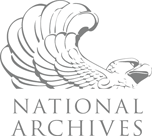 Webcontent-Anzeige
Webcontent-Anzeige
Educational Programs at the FDR Presidential Library & Museum
The Franklin D. Roosevelt Library and Museum fosters research and education on the lives and times of Franklin D. Roosevelt and Eleanor Roosevelt, the Great Depression, and World War II and their continuing impact on contemporary life. Its Education Department staff conducts educational programs designed for K-12, college and university students; adult learners; and the general public. These programs include classroom workshops, Museum programs, teacher development seminars, and outreach. All K-12 educational programs at the Franklin D. Roosevelt Library and Museum are provided free of charge and are supported in part by the Robert L. Bier Education Center of the Franklin and Eleanor Roosevelt Institute. The National Park Service offers interpretive programs for school groups that are not included in the list of National Archives programs below. Please visit www.nps.gov/hofr for information related to the Roosevelt-Vanderbilt National Historic Sites.
Program Facilities
The Henry A. Wallace Visitor and Education Center serves as a joint visitor and education center for those who come to the Franklin D. Roosevelt Presidential Library and Museum and the Home of FDR National Historic Site.
The Center's facilities include three classrooms for interactive and hands-on activities, each with a fifty student capacity, and state-of-the-art audiovisual facilities with distance learning and video conferencing capability. The Wallace Center also serves tourists visiting the Presidential Library and Roosevelt Home with an introductory film and orientation exhibits, museum store (teacher discounts for classroom materials are available), seasonal cafe and ample restroom facilities.
Please see Plan a Field Trip for more information about booking a visit for your school group. You can also download the Education Programs Brochure for a printable version of the information below.
Document-based Programs
2nd and 3rd Grade
Franklin D. Roosevelt: Fala's Famous Friend
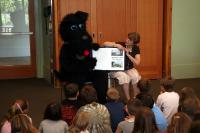 Students get a ‘dog’s-eye-view’ of the lives and times of Franklin and Eleanor Roosevelt as told by a historical interpreter dressed as Fala, FDR’s famous Scottish Terrier. Sharing a book he has written about the Roosevelts, Fala engages students in a biographical overview of the Roosevelt era (which includes a question and answer period) in a way that is entertaining, informative and interactive.
Students get a ‘dog’s-eye-view’ of the lives and times of Franklin and Eleanor Roosevelt as told by a historical interpreter dressed as Fala, FDR’s famous Scottish Terrier. Sharing a book he has written about the Roosevelts, Fala engages students in a biographical overview of the Roosevelt era (which includes a question and answer period) in a way that is entertaining, informative and interactive.
Following the presentation, students explore the museum galleries with a Fala-themed guided- note-taking activity book provided to them as an educational activity and a souvenir keepsake of their visit.
4th through 6th Grade
Pretend You Are the President
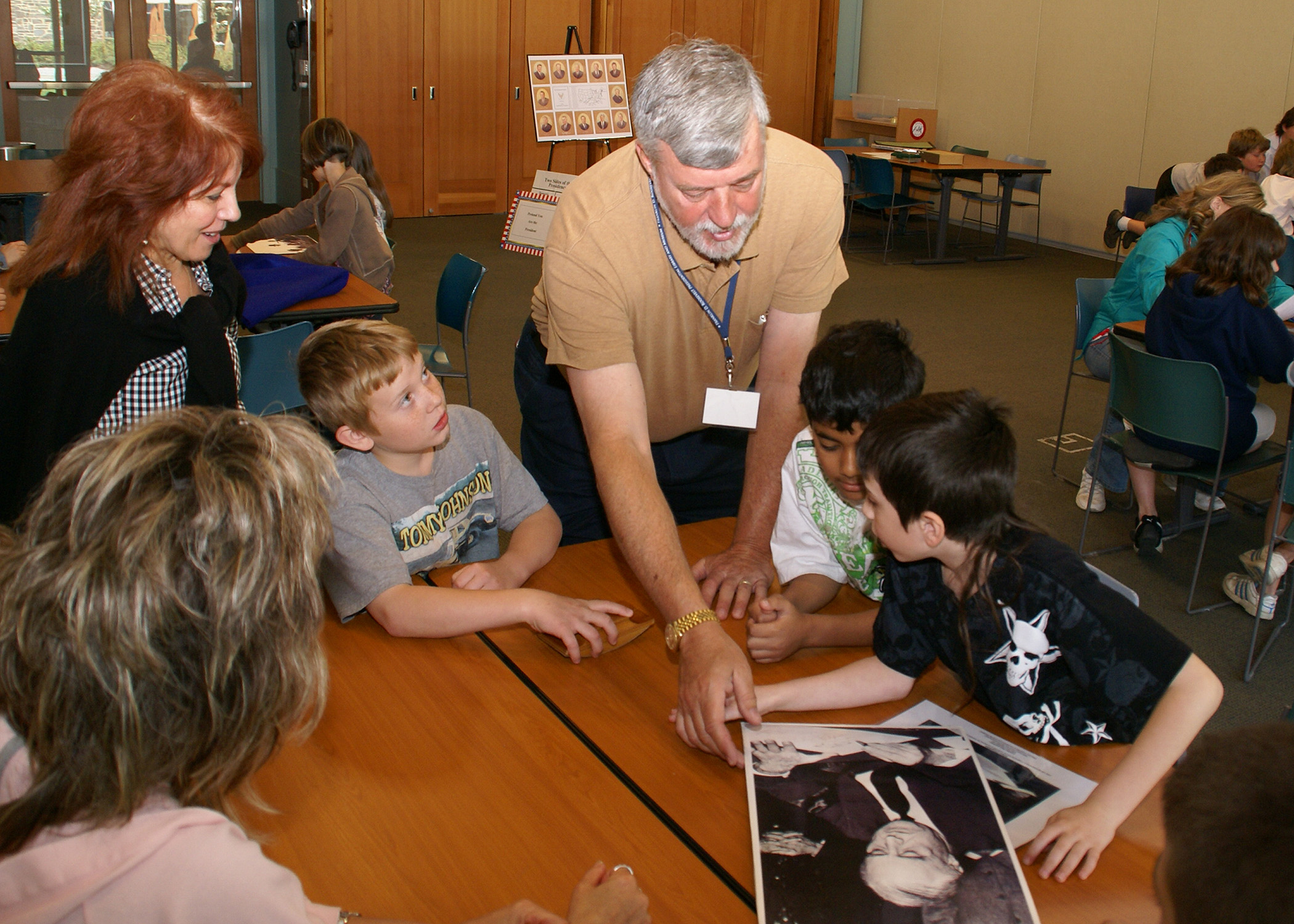 The difficult task of running a nation is demonstrated and experienced as students seek to answer the essential question, “What’s it like to be the President?” The lesson begins with an examination of the duties that comprise each of the roles outlined in the Constitution as the president’s ‘job description.’ Next, students break into small groups to examine a photograph, document and object associated with one of the five key presidential roles: Commander-in-Chief, Head of State, Foreign Policy Maker, Initiator of Legislation, and Political Party Leader. During a concluding activity the students present their findings to the rest of the class.
The difficult task of running a nation is demonstrated and experienced as students seek to answer the essential question, “What’s it like to be the President?” The lesson begins with an examination of the duties that comprise each of the roles outlined in the Constitution as the president’s ‘job description.’ Next, students break into small groups to examine a photograph, document and object associated with one of the five key presidential roles: Commander-in-Chief, Head of State, Foreign Policy Maker, Initiator of Legislation, and Political Party Leader. During a concluding activity the students present their findings to the rest of the class.
Following the program, students explore the museum galleries with a roles-of-the- President-themed note-taking activity with a section they can use to chart the current President as he/she exercises each of the presidential roles in the weeks following their visit.
Eleanor Roosevelt: First Lady of the World
By examining important moments that shaped the life of Eleanor Roosevelt, students discover the unique qualities that made her a ground-breaking First Lady for the United States and for all the world. Documents, photographs and reproduction artifacts from our holdings, excerpts from her own writings, and works of fiction such as “Amelia and Eleanor Go for a Ride” are used to highlight her work in civil rights, human rights, women’s rights and her role as assistant and advisor to the President. Special emphasis is placed on her role in creating the Universal Declaration of Human Rights at the United Nations.
Following the program, students explore the museum galleries with an Eleanor Roosevelt- themed guided-note-taking activity sheet.
7th through 12th Grade & College Level
The Presidency: Day of Decision
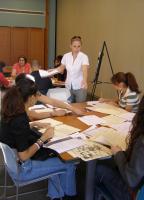
This program allows students to get a sense of the tremendous burden and complexity of the modern American Presidency by asking them to assume the role of a President who is facing a series of crises requiring fast action and tough choices. The problems range from international aggression, domestic transportation and labor concerns, and natural disasters. By consulting with advisors, allocating resources, managing the press, and racing against the clock, the “Student Presidents” experience first-hand the pressures of the Oval Office. The activity culminates in a debriefing session to analyze and discuss how the “Student President” performed in office and how he/she will be evaluated and viewed by history.
Following the program, students explore the museum galleries to discover and assess the Roosevelt Administration’s handling of similar crises.
Roosevelt Issues Forum: Using Primary Sources to Present the Past and Future
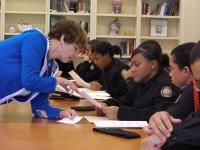 This archival workshop uses grade-appropriate copies of primary source documents drawn from the more than 17 million pages in the Roosevelt Presidential Archives to introduce students to the lives and legacies of President and Mrs. Roosevelt, and to the two major crises that marked their time in the White House: the Great Depression, and World War II. Students learn how to use an archival collection to locate primary sources and how to examine, analyze, compare, contrast, and draw and defend conclusions surrounding important issues, topics, programs, and controversies from the Roosevelt era. Important connections between conditions during the Roosevelt era and today are highlighted.
This archival workshop uses grade-appropriate copies of primary source documents drawn from the more than 17 million pages in the Roosevelt Presidential Archives to introduce students to the lives and legacies of President and Mrs. Roosevelt, and to the two major crises that marked their time in the White House: the Great Depression, and World War II. Students learn how to use an archival collection to locate primary sources and how to examine, analyze, compare, contrast, and draw and defend conclusions surrounding important issues, topics, programs, and controversies from the Roosevelt era. Important connections between conditions during the Roosevelt era and today are highlighted.
Plan a Field Trip
Teacher Development Workshops
The Roosevelt Presidential Library and Museum offers a number of both on and off site Professional Development Workshops drawing on our rich resources and knowledgeable staff. Teachers can sharpen their skills, renew their enthusiasm for teaching history and earn professional development credit by attending a variety of professional development workshops including:
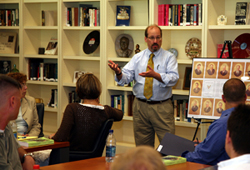 Teaching American History Grant Workshops (each specially designed to District and Grant specifications and requirements )
Teaching American History Grant Workshops (each specially designed to District and Grant specifications and requirements )- Introduction to Resources and Programs at the Roosevelt Presidential Library
- Working with Primary Sources at the Roosevelt Presidential Library and Museum
- Developing Document Based Questions from Primary Source Material from the Roosevelt Presidential Library and Museum
- Using Film in the Classroom
- Racism in America: Tuskegee; Today; Tomorrow
Find detailed descriptions of these informative workshop programs by visiting our Teacher Development Workshops page. You can also contact the Library's Education Specialist Jeffrey Urbin by phone at (845) 486-7761 or by email at Jeffrey.Urbin@nara.gov for more information



